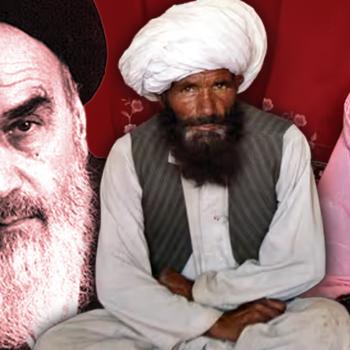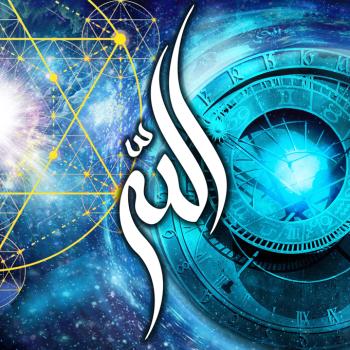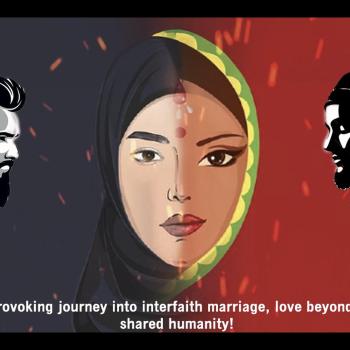The Progressive Muslim Union is on life support, Muslim Wakeup! is taking a bit of a nap, and the so-called “moderate majority” groans whenever the terms “progressive” and “Muslim” are uttered on the same day. It would be hard to deny that the progressive Muslim movement is desperately stalled at the moment, yet Ali Eteraz’s gloomy declaration of The Death of “Progressive Islam” still strikes me as recklessly premature.
It has become en vogue in some Muslim circles to demean and rebuke those who would call themselves “progressive”; indeed, many who hold overtly progressive political views now shun the term out of the same fear of denunciation that they once rebelled against. Not everyone has the stomach, will, or sense of commitment to work with a vital yet struggling movement as it makes sense of itself and its place in the bigger picture, and while there is no fault in gracefully taking leave, some have chosen a more dramatic, narcissistic exit. Convinced that the movement cannot possible succeed because it does not conform to some personal utopia, they glibly announce its death as it struggles on behind them. Right out of the plague scene in Monty Python and the Holy Grail, they attempt to dump the frail movement on the corpse cart as it cries out, “I’m not dead!…I’m feeling better.”
In denouncing Omid Safi’s “Islamic Humanism” as “redundant” and a “lesser form of self hate,” Eteraz raises a common, though confused, objection to the very need for a progressive approach to Islam. Yes, many Muslims believe that since Islam was founded on progressive and humanistic social change it is inherently such, and to overtly call oneself a “progressive Muslim” is redundant and, by exclusion, insulting. There is a glaring flaw in this argument, however. No religion, ideology, philosophy, or mindset can be considered progressive today simply for the values it actively championed at some point in the past. In fact, I’ll take that a step further and argue that no school of thought can be considered inherently progressive. Since the degree by which any religion (in this case) can be considered progressive relies on the prevailing cultural and temporal context, active engagement is required to reinterpret and rework existing concepts, integrate new ideas, and act upon them.
Progressive Muslims recognize this and commit to be active agents of progressive social change through an Islamic spiritual path and a willingness to promote and act upon humanistic ideas regardless of cultural origin. In this view, the “straight path” of Islam is one with a distinctly steep and progressive ethical slope, on which each subsequent generation of humanity is obligated to make successive gains.
Most bewildering, however, is Eteraz’s statement that the lack of a progressive Muslim “juridical authority” presents “an insurmountable” problem for the movement. Befuddling, as it always seemed to me that it was the overbearing presence of just such “authorities” that have served to stymie if not destroy past progressive movements. Of course, every tradition has the potential to benefit from the work of scholars, academics, historians, and jurists; however, the notion that a progressive Muslim movement is doomed unless it dictates morality from on high is simply absurd and a reflection of the current state of dogmatic thought. Does anyone really believe that “all practicing Muslims turn to some kind of juridical authority” as Eteraz asserts?
For most of the spiritually minded among progressive Muslims, there is a desire to engage directly with scriptural sources and form personal interpretations. In fact, this impulse is certainly not unique to progressives. While these same Muslims may then evaluate juridical opinions against their own, they are free to accept or reject them (at least in legitimate secular democracies). By referring to Islamic jurists or scholars as “authorities” is to suggest that contradicting them is a transgression of faith. This simply has no place in the progressive view.
Clearly, the progressive Muslim movement is not without its faults. A surplus of ego and ambition along with a paucity of vision and commitment are certainly partly to blame for the current malaise; and yet, even as the initial flare up begins to simmer down it refuses to be entirely extinguished. Slowly, the energetic impulse that inspired the initial spark of frenetic action is being channeled into coherent forms and deliberate endeavors. Thanks, in part, to the overly scrutinized and under planned actions of some of the more publicized (and demonized) figures, Muslims all over the country have been drawn to this immature yet promising movement and a committed core is growing daily.
Outside of blogs and e-mail lists, the progressive Muslim movement is taking shape locally on a grassroots level. From Los Angeles to Chicago to New York and countless locales in between, progressive Muslims are finding each other in the real world: praying together, discussing, arguing, protesting, and planning. They are working slowly to give shape to a cohesive discourse in a decidedly less media driven manner than in the past few years. As with any movement this young, they are off to the best start that can be hoped for, a steady and stable crawl.
And lest I forget, they are proud to call themselves “progressive”� as am I.
Sam Aboelela is the organizer of the NYC Progressive Muslim meetup, which has over 450 members and has weekly meetings.















